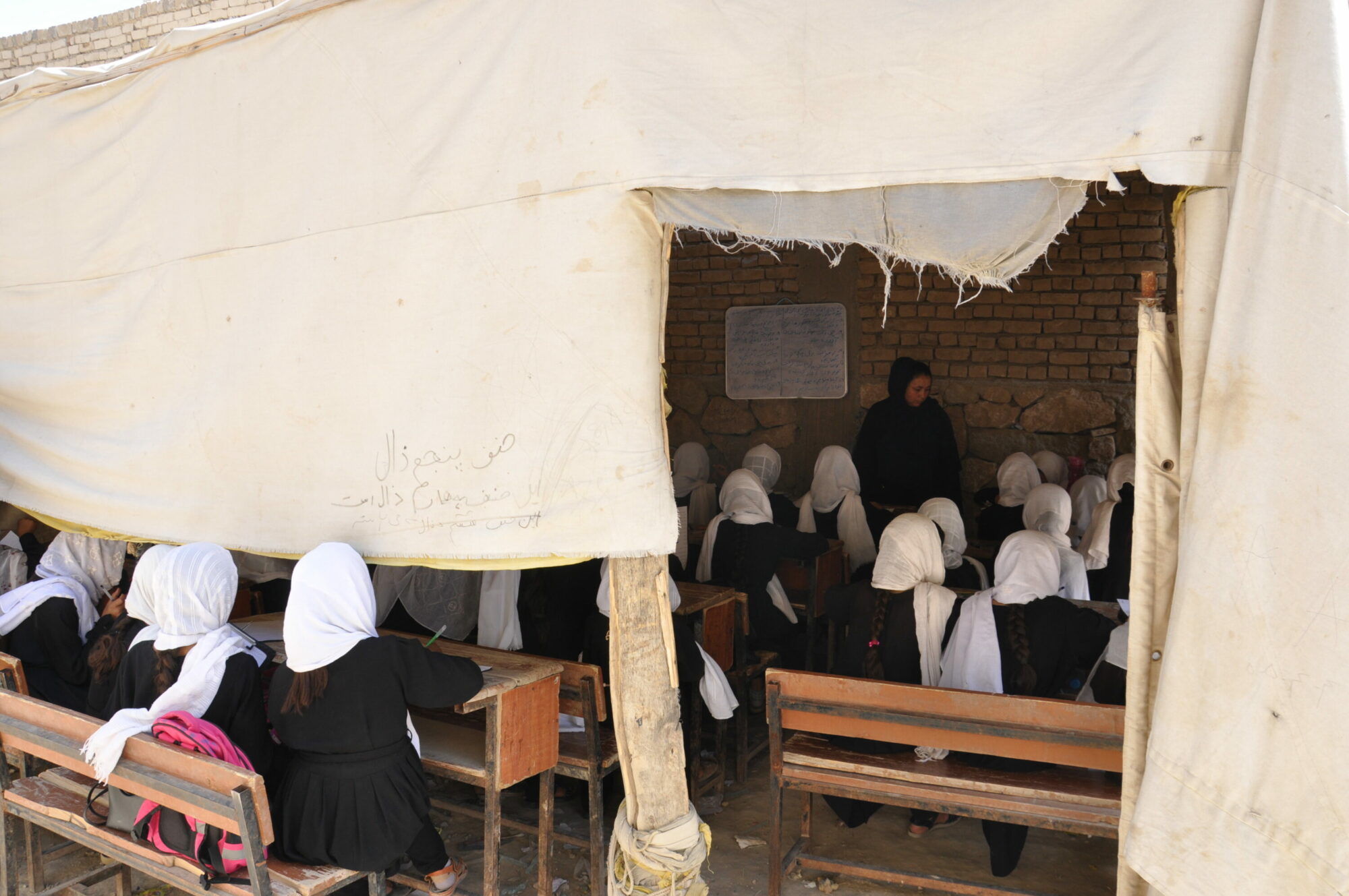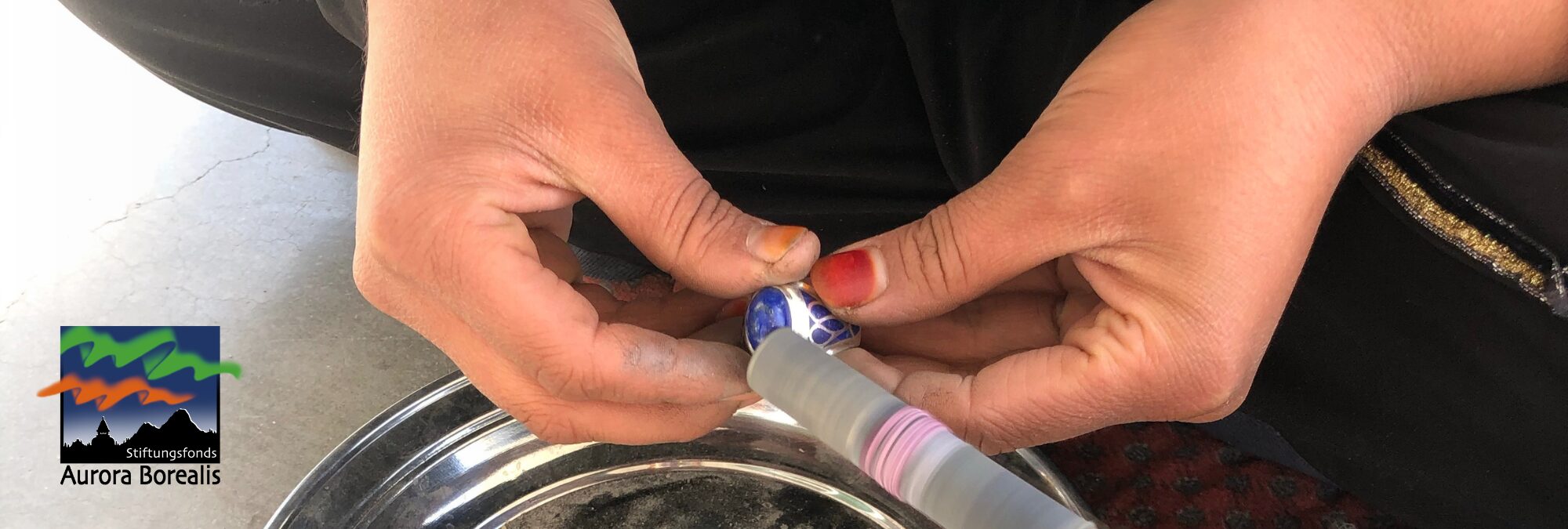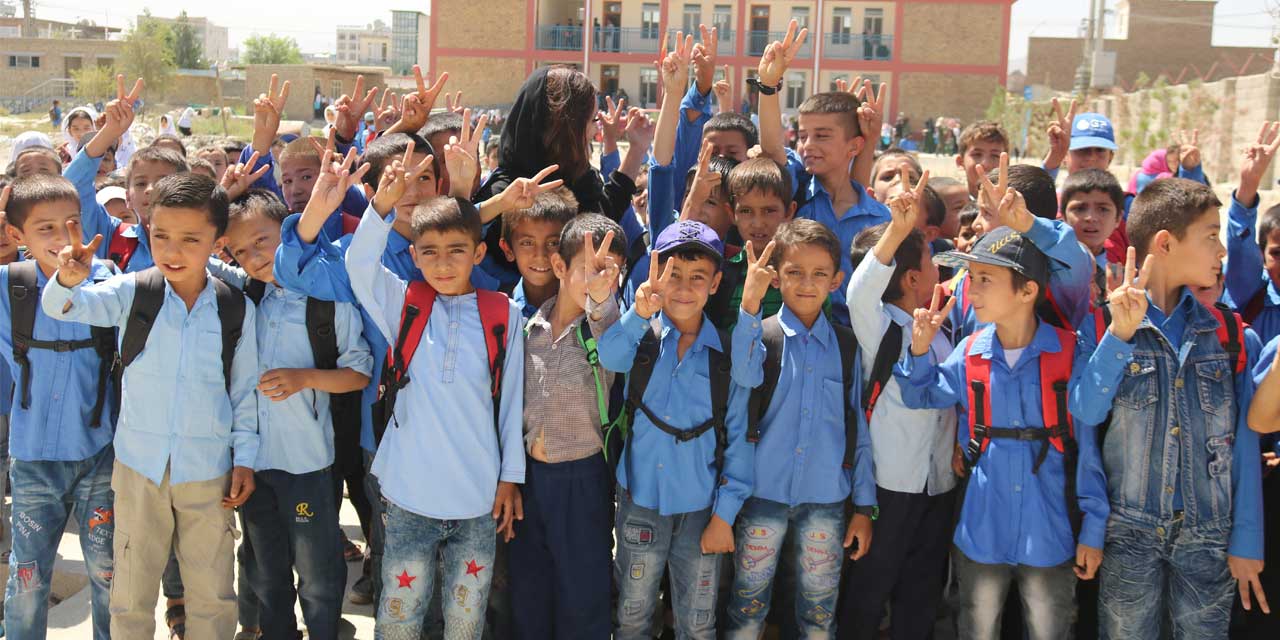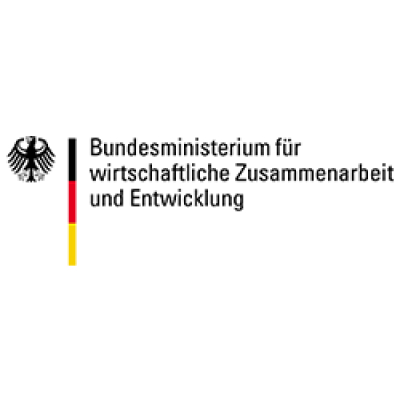
Otuke WASH program
With the WASH program (Water, Sanitation, Hygiene), a project to improve hygiene standards, menstrual hygiene and the promotion of sustainable school structures, including various workshops, is being launched at seven state elementary school. The seven project schools are located in the Otuke district, a rural area in the north of Uganda, whose educational infrastructure and supply of water and electricity has come to a partial standstill as a result of conflict.
Most of the approximately 6,000 pupils come from financially disadvantaged families with a low level of education. There is no electricity at any of the schools and there is only partial access to water. There is a lack of sanitary facilities and those that do exist are in a desolate state. These circumstances make it considerably more difficult for girls in particular to attend school. Together with our partner organization Link to Progress (LTP), we are therefore planning to build new sanitary facilities, establish a water supply, introduce school meals and offer accompanying workshops.
INITIAL SITUATION
The seven state elementary school are located in an economically very weak, rural region in the north of Uganda. The approximately 133,500 inhabitants of the Otuke district live in 356 villages, some of which are very isolated. Most families earn their own living as farmers, 93% of the population is unemployed. Uganda’s conflict-ridden past has destroyed much of the country’s infrastructure, which has also severely damaged access to education. Due to financial poverty, a lack of resources and information, there is a lack of civil and private commitment. The support from the education authority only covers basic expenses such as teachers’ salaries.
LACK OF CARE LEADS TO SCHOOL DROPOUTS
Around 6,000 pupils at the elementary school learn without a power supply, and three out of seven schools even have no water supply. The local project partner Link to Progress (LTP) built new wells at the remaining four project schools in January 2022. Overall, the hygiene situation at all seven schools is critical. Most of the latrines are in a dilapidated state, some are unusable and offer no opportunity for hygienic toilet use. There are insufficient hand washing facilities for the large number of pupils. Valuable teaching time is lost due to long queues in front of the sanitary facilities. For example, 430 children share a washbasin and 78 children share a toilet. In comparison: according to Ugandan government guidelines, schools should have one toilet and one washbasin for every 40 pupils. Access to drinking water and sanitary facilities at school is essential for pupils’ health and ability to concentrate. The sanitary facilities also make it difficult to attend school inclusively as they are not barrier-free.
The lack of access to clean water and the inadequate latrines also mean that girls in particular are absent from school during their periods. Almost a quarter of Ugandan girls between the ages of 12 and 18 even drop out of school completely when their period starts. The reasons are manifold, but can be traced back to a lack of adequate sanitary facilities and inadequate hygiene products.
The nutritional status of pupils is an important factor for the quality of education. There are currently no school meals at the project schools because the existing ovens are not sufficient for the number of children. For this reason, some pupils have to leave school early due to hunger or do not show up at all.
ACCESS TO EDUCATION FOR GIRLS AND BOYS WITH CORONA WORSE
In Uganda, schools remained closed for longer than in any other country in the world due to the coronavirus pandemic – pupils did not experience a regular school day for almost two years. While the long school closures have led to the already precarious educational situation in the country deteriorating further, the individual situation for the pupils is dramatic. Unlike in many parts of the world, pupils in many regions of Uganda had neither access to digital learning opportunities nor the means to catch up on important learning material at home. As a result, many of the pupils are far behind in their school careers – in some cases they have to start from scratch.
At the same time, access to education for girls and boys has worsened as a result of the long school closure. Many girls across Uganda are unable to return to school due to pregnancy and marriage – teenage pregnancies and child marriages have risen dramatically as a result of the pandemic. At the same time, boys are prevented from attending school because of other jobs that help support the family.
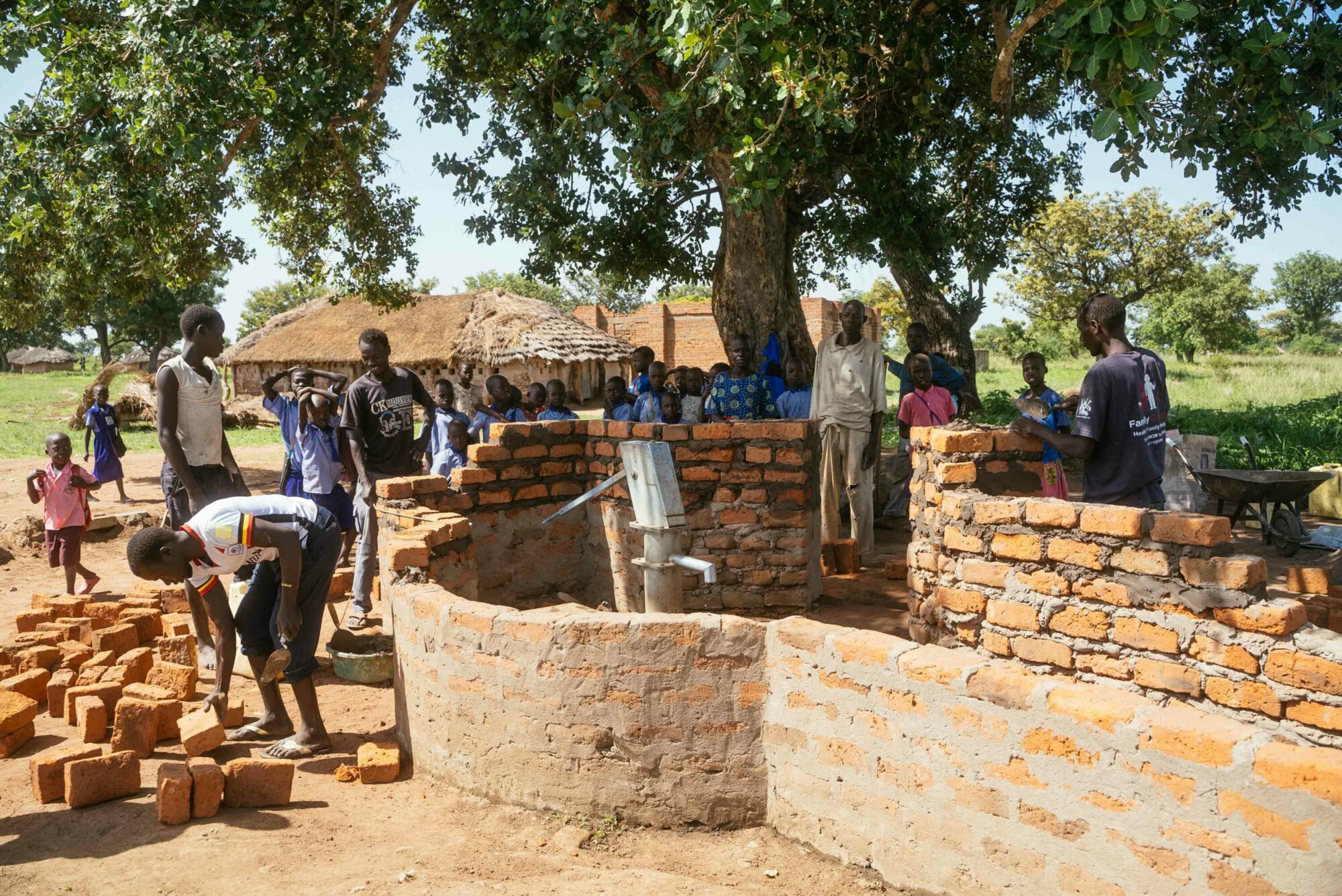
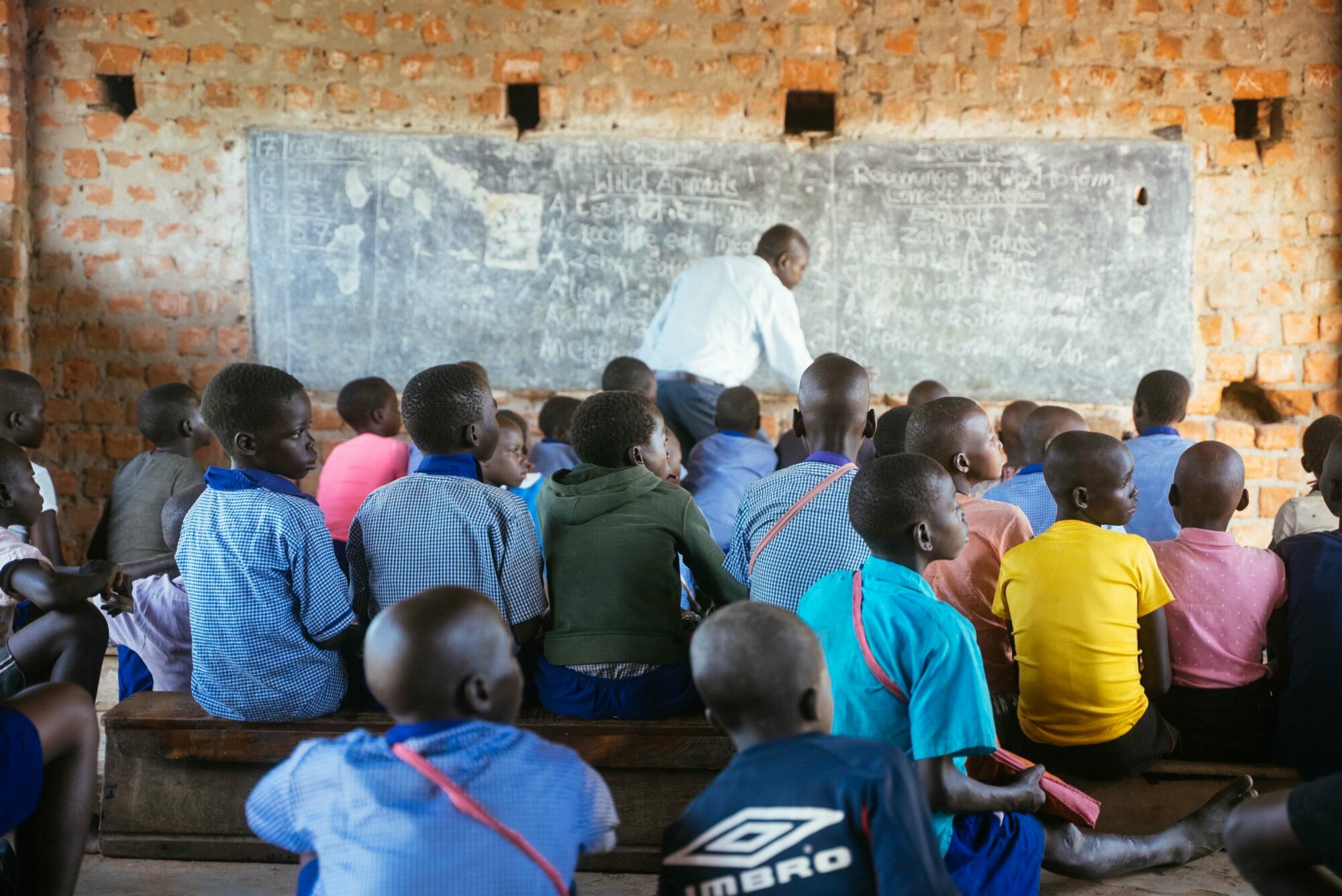
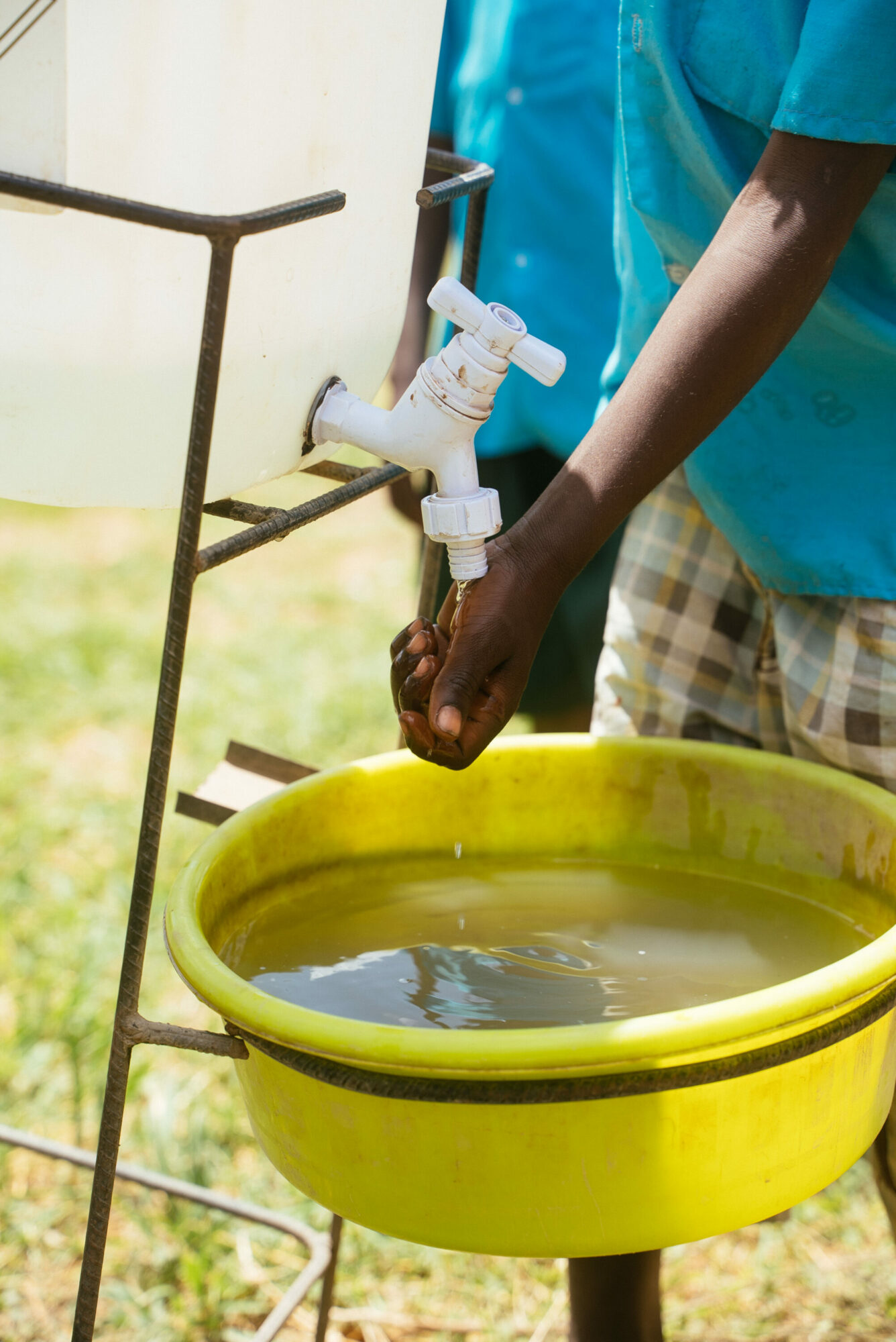
SOLUTIONS
The project focuses on three central points: Improving hygiene standards, increasing pupils’ knowledge of sexual maturity, puberty and menstruation, and promoting sustainable school structures.
The improvement in hygiene standards is achieved by providing a water supply, hygienic sanitary facilities and knowledge transfer. The project plan therefore provides for the construction of 3 wells, 14 handwashing facilities, 12 latrine blocks including 6 washrooms for girls. In the various workshops, pupils learn how to use water and sanitary facilities and the importance of hygiene.
In the workshops on menstrual hygiene and puberty in particular, the older pupils learn about the female cycle and how they can make their own sanitary towels and other hygiene products from simple materials. Breaking down taboos and imparting knowledge to the entire student body helps to ensure that female students are not absent from school because of their period and are not at an educational disadvantage.
To promote sustainable school structures, we are working with our local project partner LTP to strengthen the school management committees and the parent-teacher committees. In various workshops, parents and teachers can learn about measures to improve the school, including the maintenance and management of the new wells. The introduction of school meals is also a key issue. Meals at school help pupils to learn with greater concentration or to participate in lessons at all. This increases the incentive for parents to send their children to school if they receive a meal there.
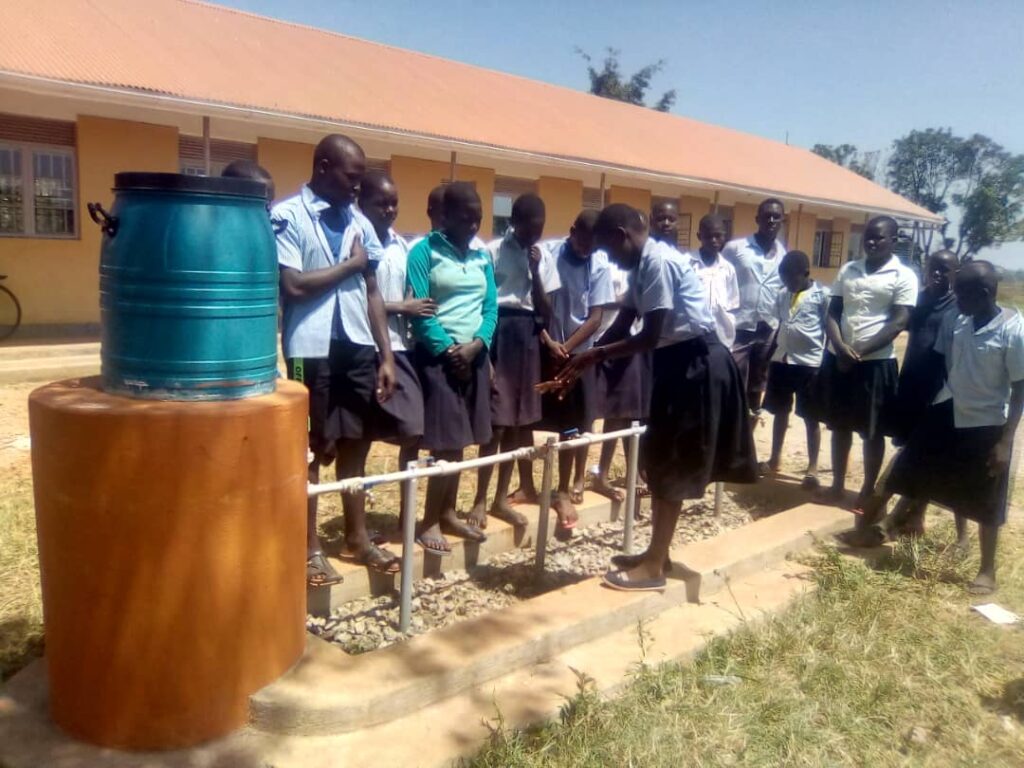
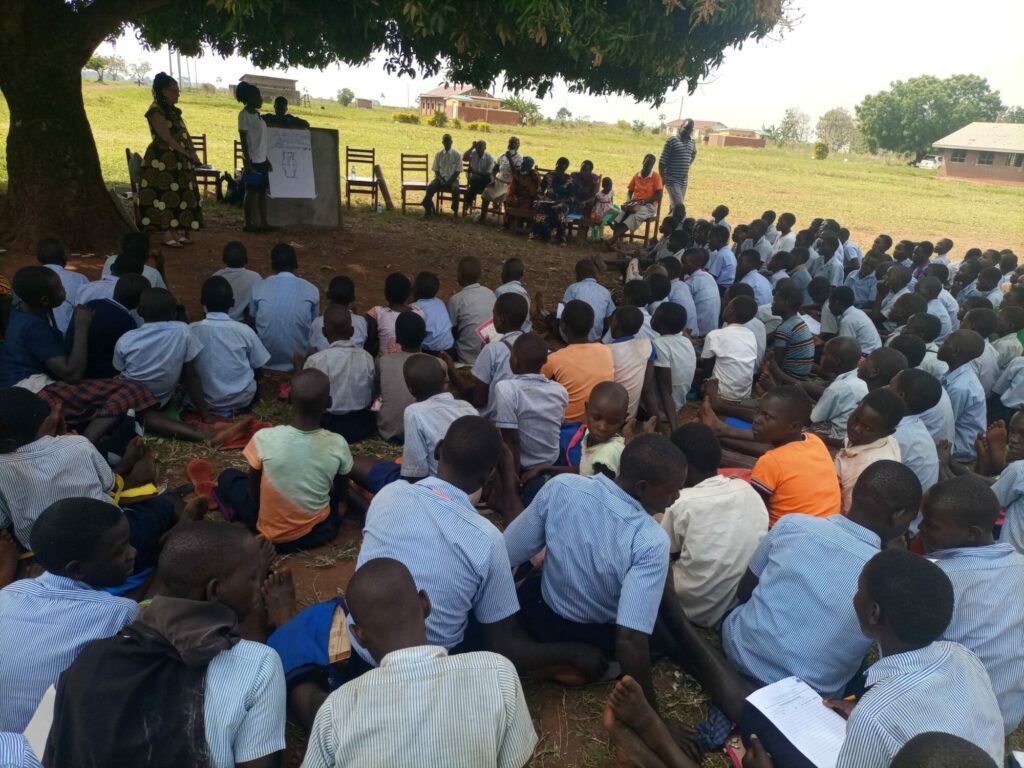
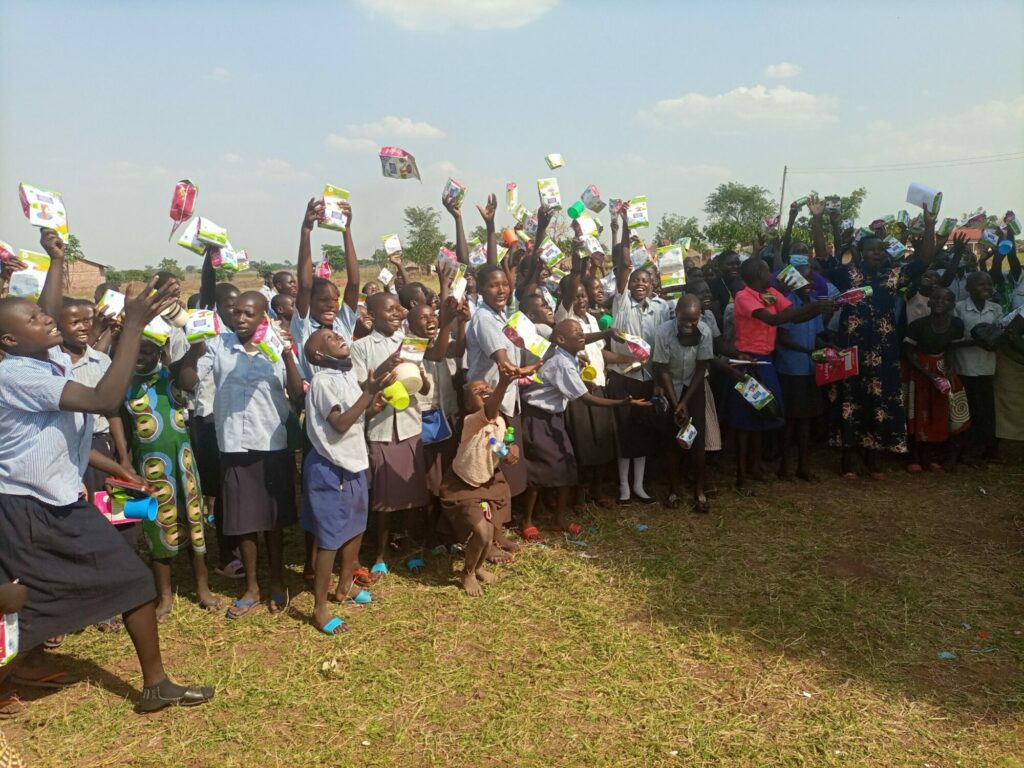
THE LOCAL PARTNER - LINK TO PROGESS
LTP is an NGO registered in Uganda and was founded in 2008. The main focus of LTP is to provide vulnerable communities in Uganda with basic hygiene infrastructure, access to basic education and quality learning. LTP monitors, documents, supervises and evaluates the entire construction process. The workshops are also organized directly by LTP.
WHAT HAS BEEN ACHIEVED SO FAR
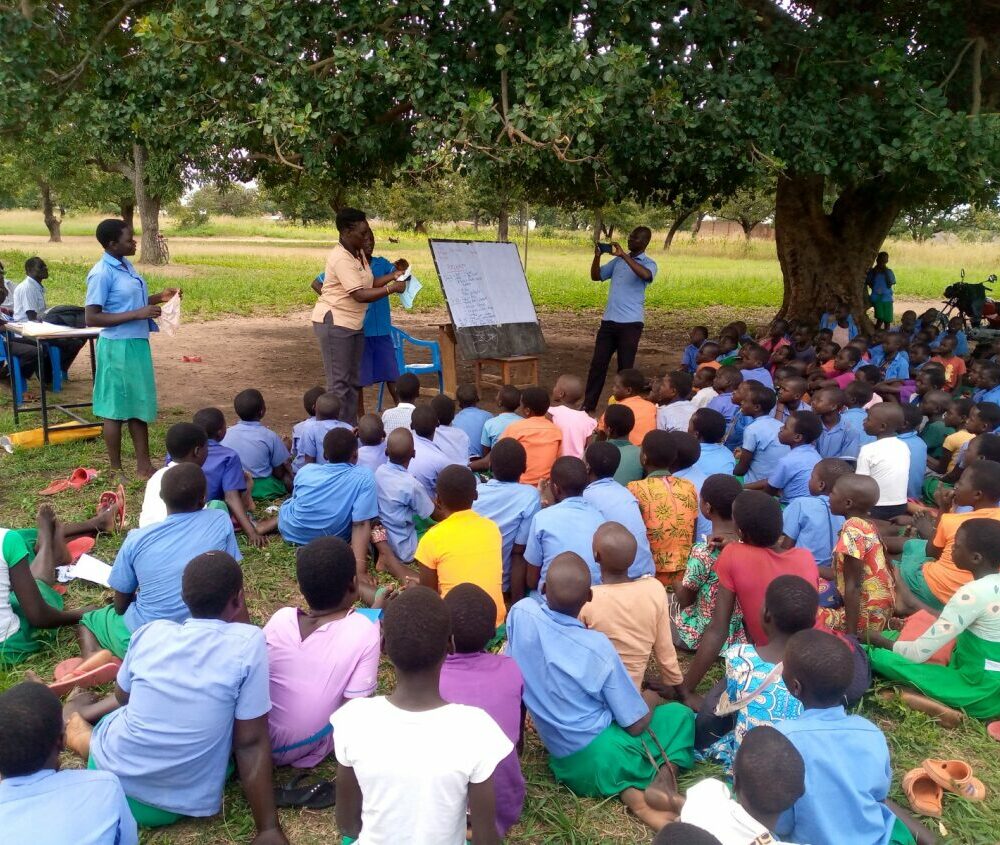
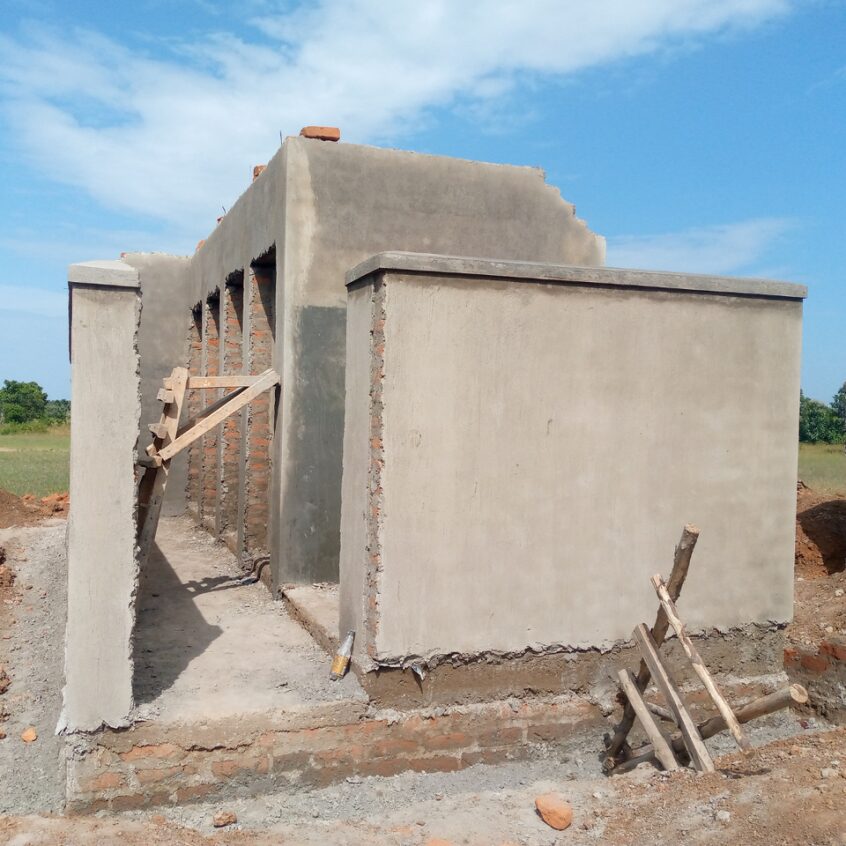
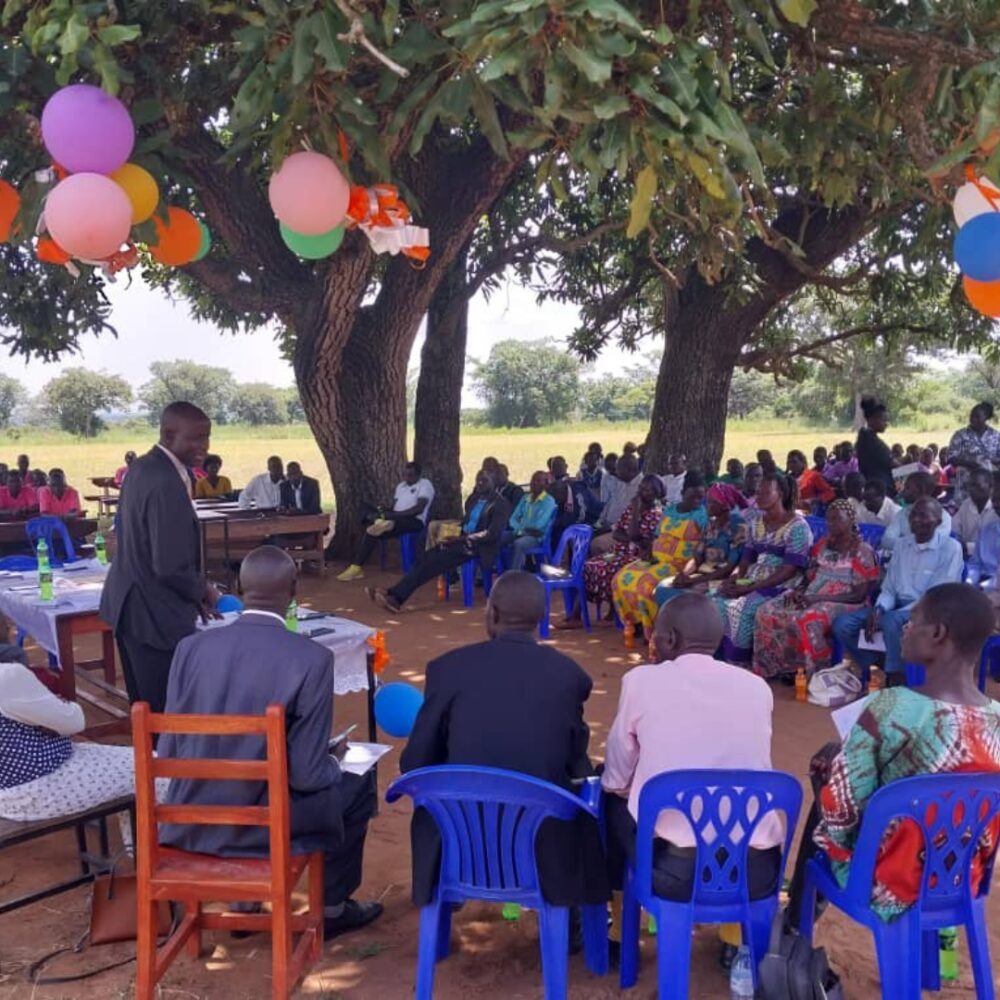
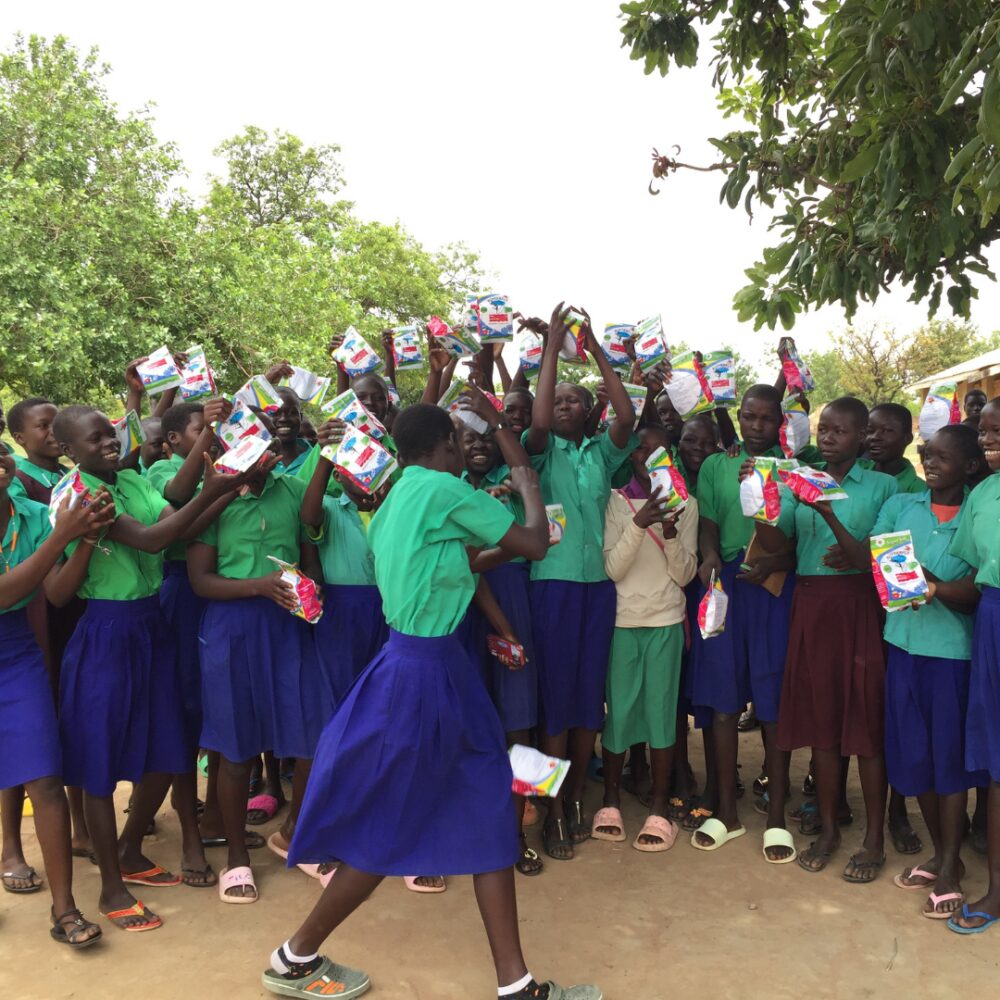
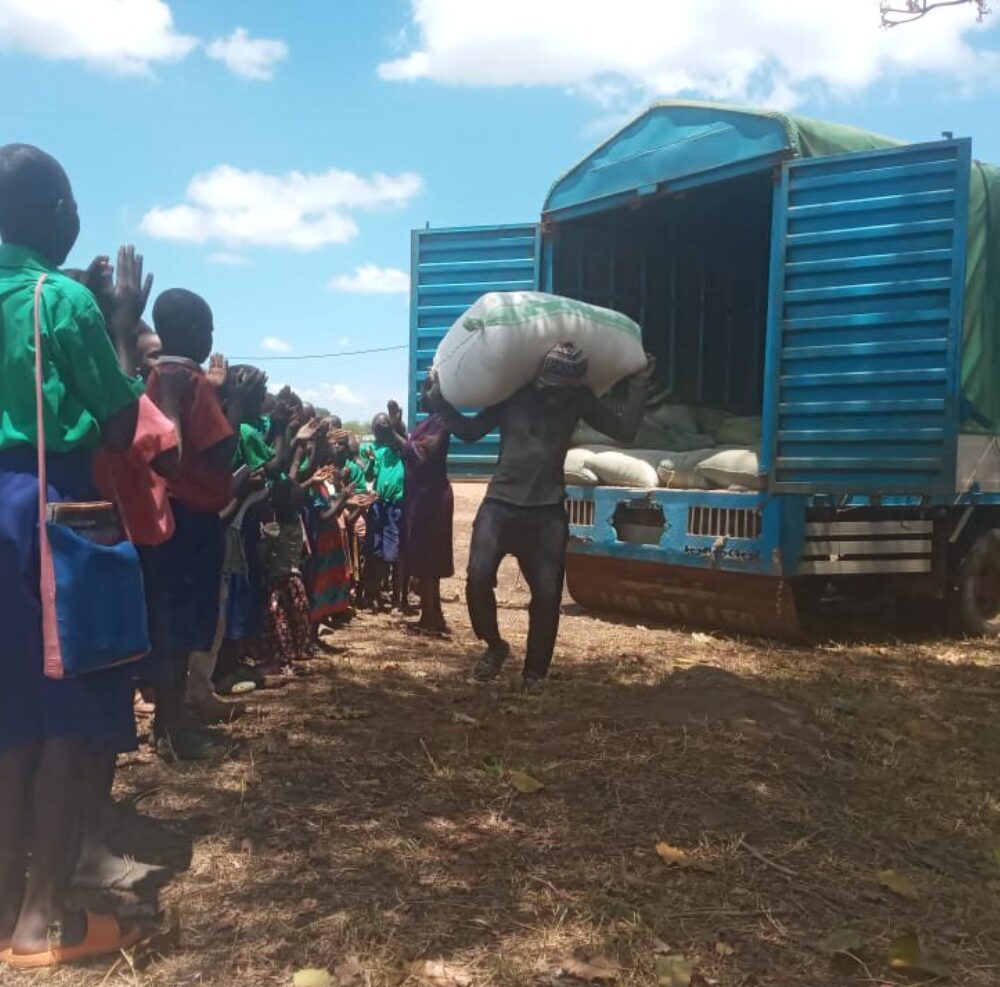
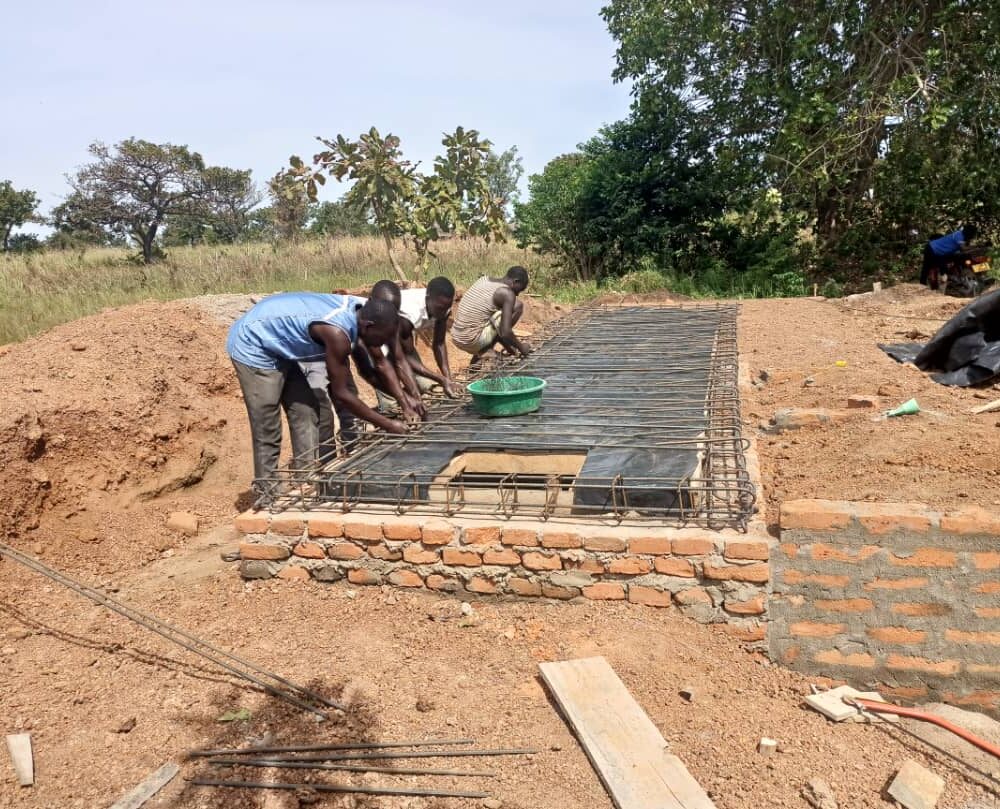
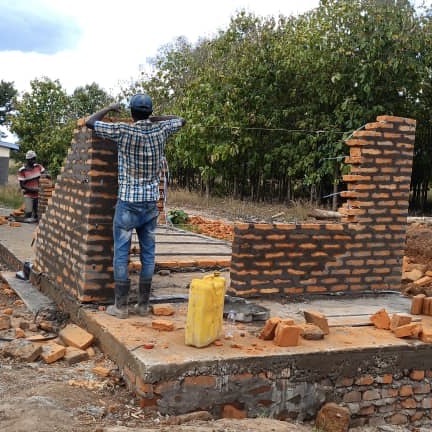
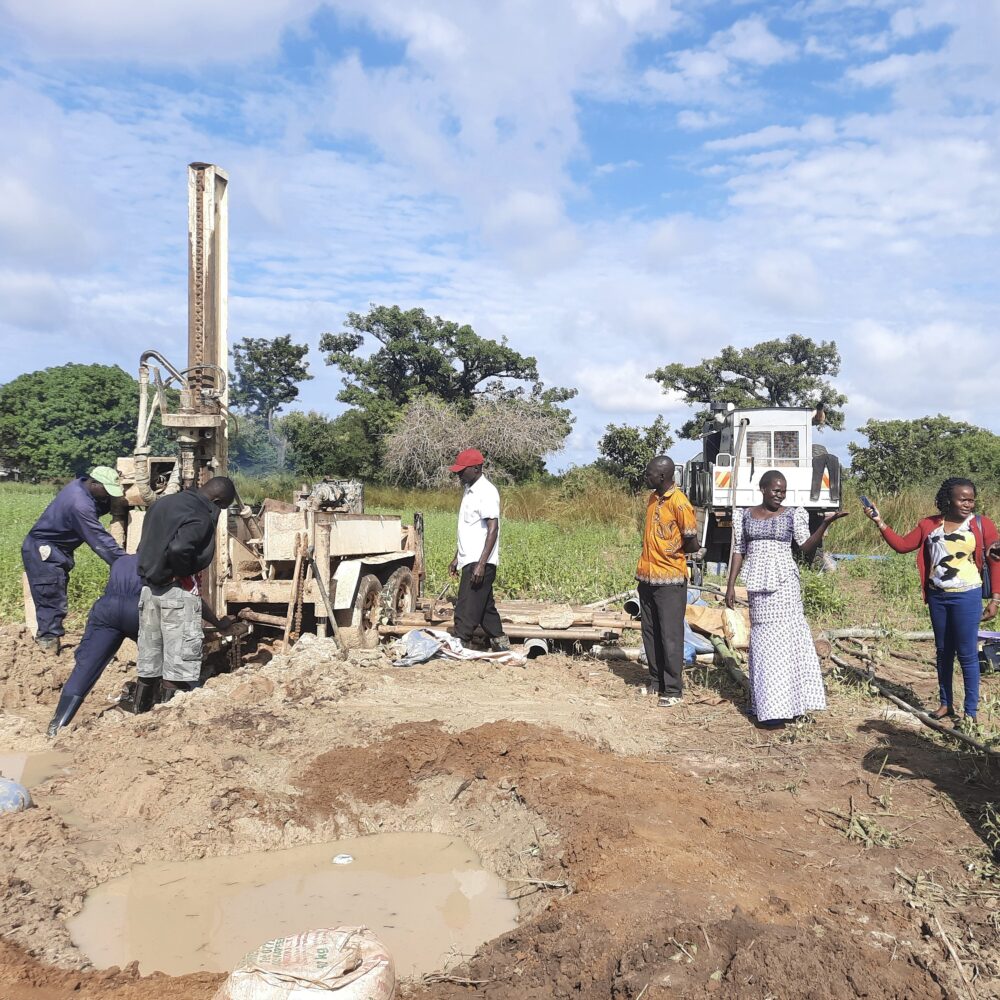
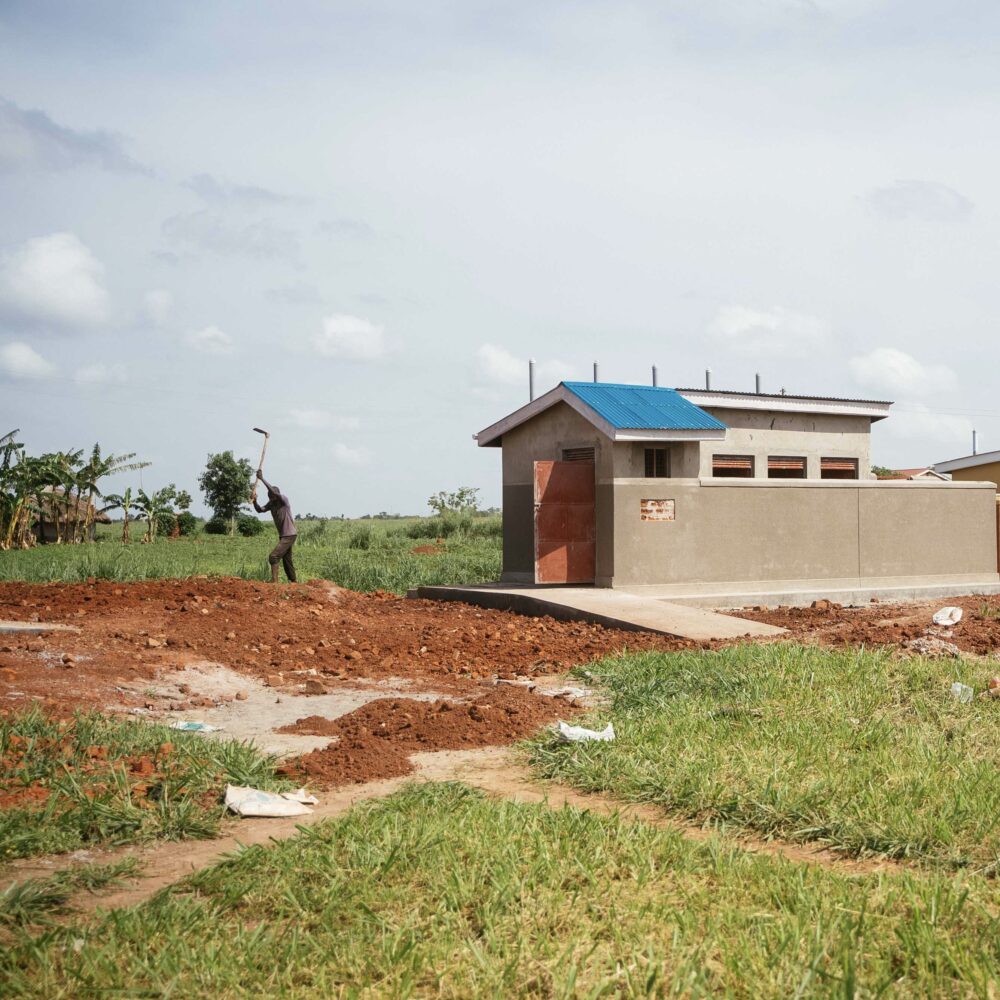
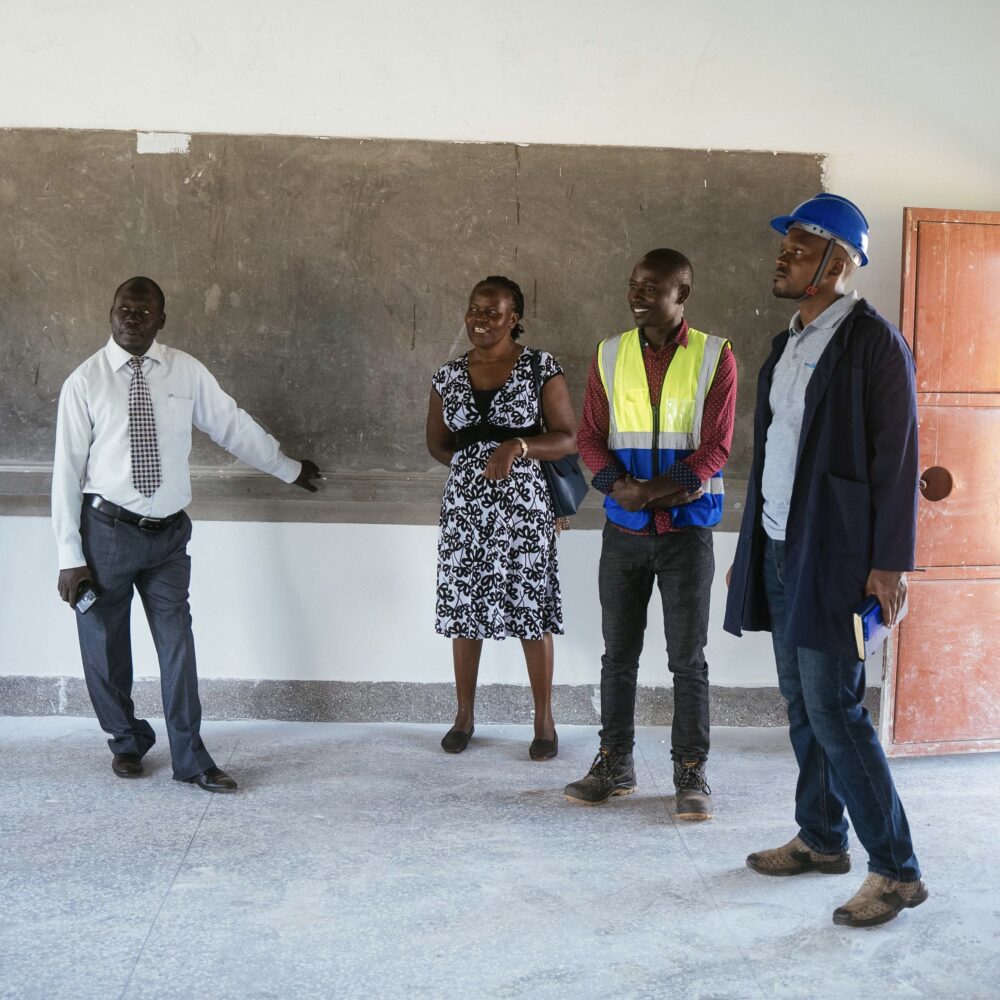
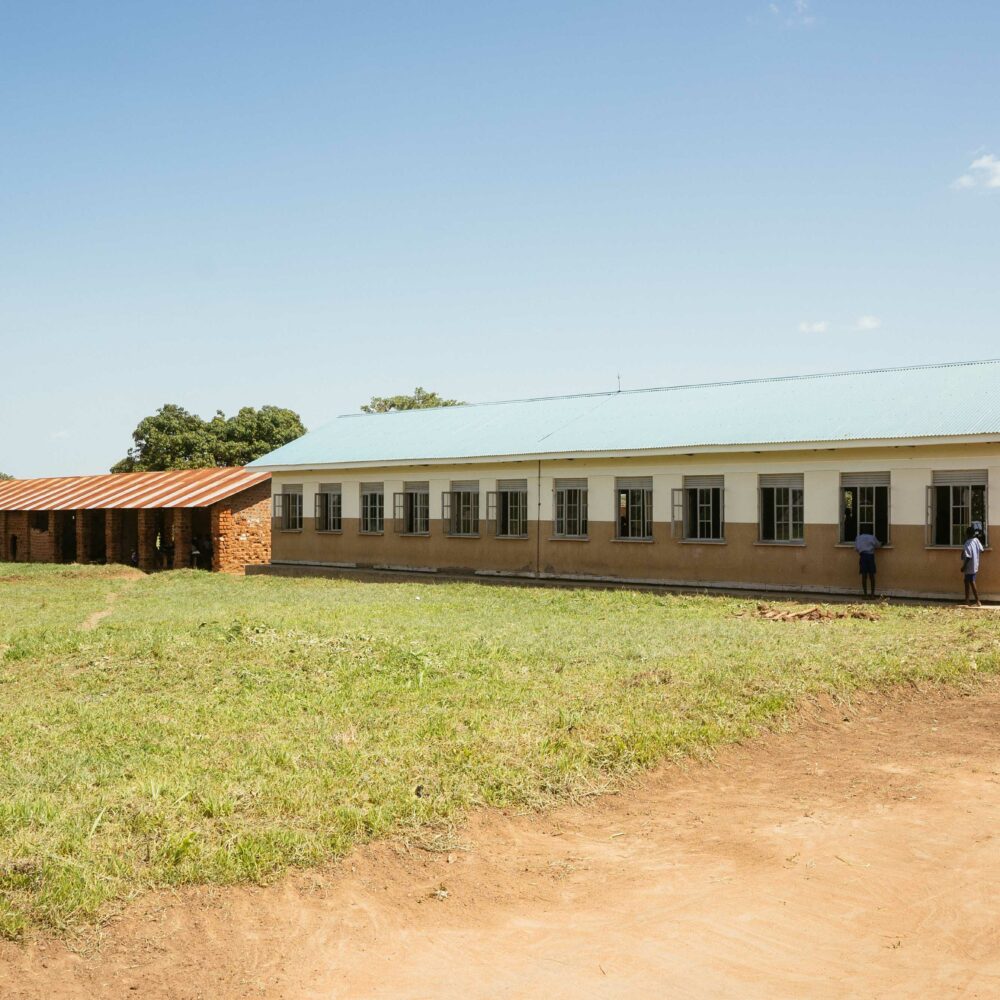
TRAINING COURSES AND COMMUNITY MEETINGS
Construction work on latrines and handwashing facilities at seven elementary school in the Otuke district has been successfully completed. Community meetings promoted the exchange between teachers, parents and pupils, led to the presentation of the WASH project and the decision for a school feeding program. At the same time, training courses were held on sanitary practices, menstrual hygiene and village savings and loan associations.
SECOND PHASE STARTS
Following the successful implementation of the first phase of the WASH program, the second phase begins. In a meeting with representatives of the district, school management and parents, measures were presented, the spatial challenges discussed and responsibilities defined. At the same time, construction work is progressing well, including the construction of latrine blocks and hand-washing facilities.
SUCCESSFUL COMPLETION OF THE FIRST PHASE
The first phase has been successfully completed, which means clean water and improvements in education for the communities. New wells, toilet facilities and educational measures were implemented, accompanied by a ceremonial handover of the school. The second phase will soon reach more schools.
WORKSHOP ON MENSTRUAL HYGIENE
The aim of the four-day training sessions at 4 of the 7 project schools was to strengthen knowledge and skills about menstrual health and hygiene. In addition to learning about bodily changes, the participants also learned how to make their own reusable sanitary towels. Boys and men also took part in the workshops, as acceptance and knowledge of the topic is a key factor in breaking down prejudices and reducing the marginalization of menstruating people.
FOOD DELIVERED FOR SCHOOL LUNCHES!
The supply is intended for 1 year and covers 50% of the needs of the 4 project schools. The other 50% is contributed by parents and the schools from the school gardens.
WELL DRILLING COMPLETED!
Drilling for wells was completed at 3 schools and a workshop on well maintenance was held for teachers and parents. In addition, the construction work for the latrines is almost complete.
CONSTRUCTION WORK PROGRESSING FASTER THAN EXPECTED
The construction of the latrines at the project schools is progressing and even faster than expected! The 12 latrine blocks are expected to be completed in February.
DRILLING OF THE FIRST WELL
The first well was drilled at the Oruro elementary school and the ground was dug for the construction of the latrines. The project will then continue with the construction of wells at three more elementary school. Pupils there have had no access to water so far - which is now finally going to change!
CONSTRUCTION WORK UNDERWAY
All the preparations have been completed - now the construction work can begin. A construction company has already been commissioned and will soon begin drilling the first well.
PROJECT OFFICIALLY STARTS!
At the 7 project schools in northern Uganda, we have been tackling the lack of water and sanitation facilities in the Otuke district since August. The approximately 6,000 pupils and teachers are already looking forward to a suitable learning environment.
FIRST VISIT TO THE PROJECT SCHOOLS
During our trip to Uganda in June 2022, we visited the project schools in the Otuke district in northern Uganda with our project partner LTP.
Further educational projects
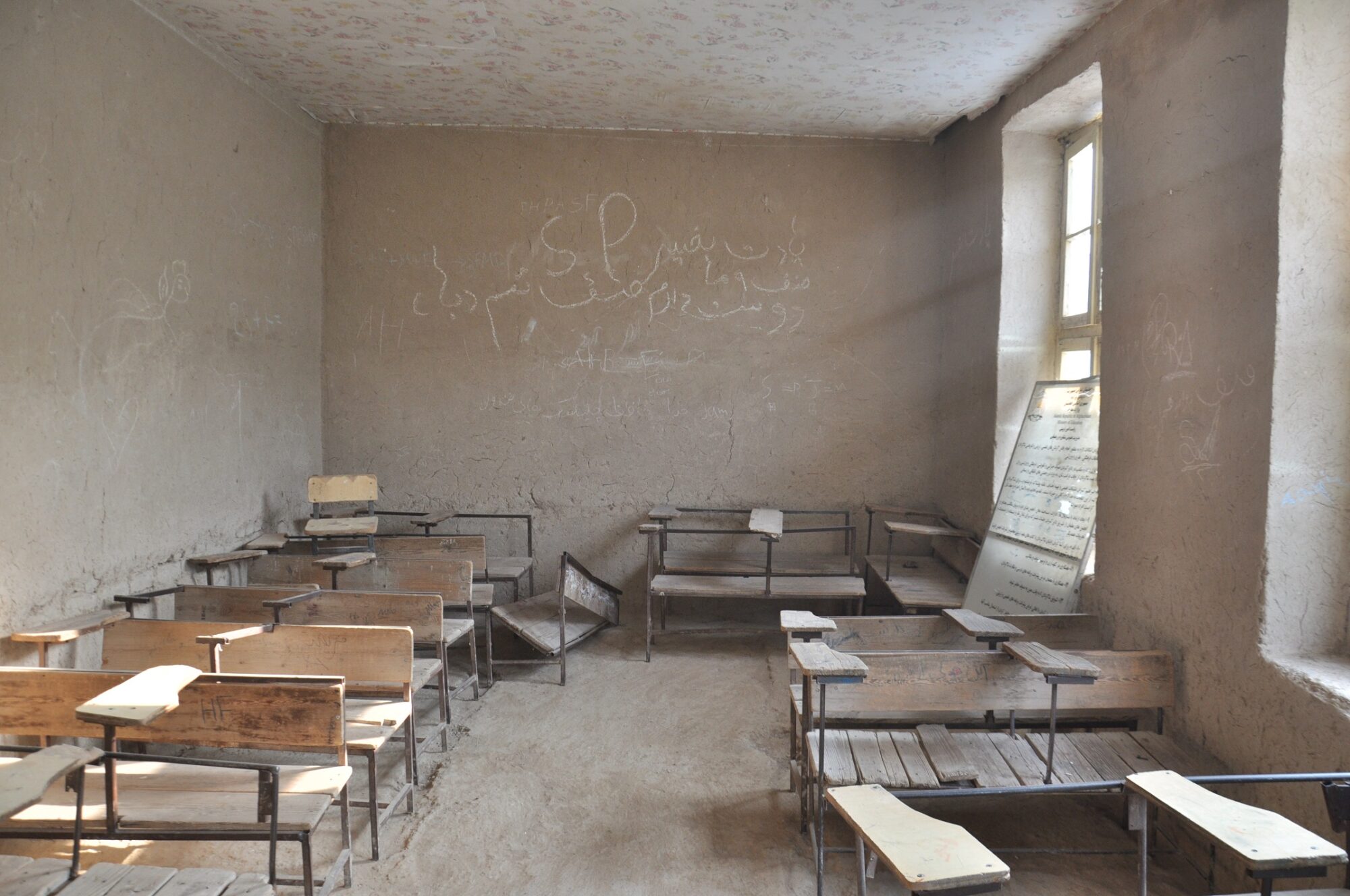 Learn more
Learn more